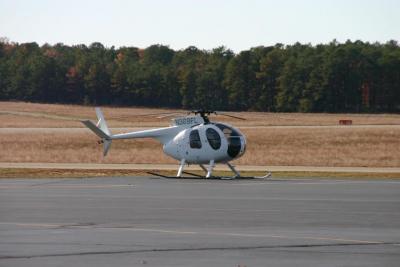Town's Supreme Court Petition on Airport Picks Up Support

East Hampton Town's petition to have the Supreme Court review a lower court decision that struck down takeoff and landing restrictions at the East Hampton Airport for noise abatement, including an overnight curfew, got some support this week when the City of New York and other groups, the Town of Southold among them, filed amicus curiae, or "friend of the court," briefs backing the town's request.
"Responsibility for protecting local residents from aviation noise has historically been shouldered primarily by local governmental airport proprietors," Zachary W. Carter, the corporation counsel for New York City, wrote in the city's brief.
The briefs argue that the lower courts improperly interpreted the role and applicability of the federal Airport Noise and Capacity Act and a set of procedures to be followed when enacting local airport regulations, particularly in the case of small airports that have declined to accept Federal Aviation Administration money.
East Hampton Town's position is that it is not subject to the act, known as ANCA; while following a broader outline under Federal Aviation Administration guidelines in establishing an underpinning for "reasonable" noise-related airport use restrictions, the town did not undergo the extensive approval process delineated by ANCA before adopting its airport regulations.
Three town laws were adopted in 2015: an overnight curfew on takeoffs and landings by all planes between 11 p.m. and 7 a.m., extended curfew hours, from 8 p.m. to 9 a.m., for planes falling into a defined "noisy" category, and a limit of one takeoff and landing per week for noisy planes.
All three were immediately challenged in court by aviation interests, and the weekly limit was barred from enactment. The curfews went into effect in early July 2015.
In November, the United States Court of Appeals for the Second Circuit struck down all three East Hampton Town laws. Represented by Kathleen Sullivan and David Cooper of Quinn Emanuel Urquhart and Sullivan, the town filed a Supreme Court petition earlier this year.
The nation's highest court chooses to hear only a fraction of the cases submitted to it each year, and it could be months before a decision is made.
"Today's filing by the City of New York illustrates that this issue is all about local control. Whether it is our country's largest city or a small town like East Hampton, local governments know what is right for their community and should have the ability to make local decisions at their own airport. We welcome the City of New York to our fight to restore local control and protect the welfare of our respective communities," Councilwoman Kathee Burke-Gonzalez, the board's liaison on airport matters, said in a press release.
The Airport Noise and Capacity Act was central to a 1998 court case against New York City regarding its 34th Street heliport, filed by the National Helicopter Corporation. In that case, the court upheld the city's right to impose restrictions on use of the heliport in order to reduce aircraft noise.
In its brief to the court, Southold Town notes that the Federal Aviation Administration had agreed that East Hampton would not be held to the ANCA provisions, and challenges the authority of the court to supersede that decision.
"Noisy helicopter overflights between Manhattan's East Side and East Hampton have inflicted collateral damage on Southold by depriving many town residents, visitors, and businesses of the natural quiet of the place," the Southold attorneys wrote in their brief.
The third brief in support of East Hampton's Supreme Court bid was filed by a local group, the Committee to Stop Airport Expansion, in conjunction with the International Municipal Lawyers Association, which has more than 2,500 members, including legal counsel for cities, counties, and towns, and is described in the brief as "an international clearinghouse of legal information and cooperation on municipal legal matters."
A portion of that brief addresses the possible impact of the courts' eliminating local decision-making over airports.
"The result of 'federalizing' every airstrip in the nation, if the Second Circuit's overreach is allowed to remain in place," it says, "will be to discourage local governments from developing and maintaining airport facilities they cannot adequately regulate. Local airports will continue to close. Local communities in turn will be deprived of the tourism and commerce those airports facilitate, as well as the benefits of private aviation."
The brief expresses support for the town's argument that the lower court decision "dramatically expands federal regulation of local airports beyond Congress's intention."
"We are hopeful that the Supreme Court will recognize this as an issue of national concern and grant review to the town's petition," Supervisor Larry Cantwell said in the release.
